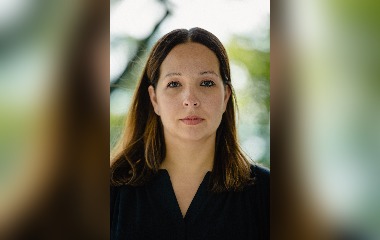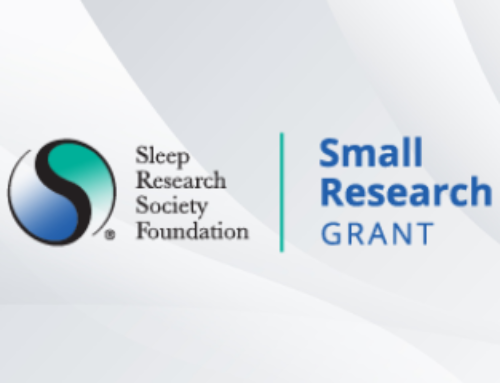Stephanie Griggs, Ph.D., RN is an Assistant Professor in the Frances Payne Bolton School of Nursing at Case Western Reserve University.
Tell us about your sleep research interests.
I am interested in the role of multiple dimensions of sleep health (including the circadian timing system) in glucoregulation among young adults with type 1 diabetes. After building a cognitive behavioral sleep self-management intervention for young adults with type 1 diabetes, my short-term goal is to test whether this intervention is efficacious in improving sleep health and glucoregulation. My long-term goal is to understand and improve key sleep health determinants of cardiometabolic health in adults with type 1 diabetes to ensure an equitable life expectancy and promote a higher quality of life. Currently, individuals with type 1 diabetes have a shortened life expectancy of 12 years.
As a clinician, what made you pursue a sleep nursing research career?
I started my nursing career as a pediatric nurse. I worked with patients and families with type 1 diabetes and observed them struggling with the diagnosis and long-term management. I provided direct care during complications of type 1 diabetes and developed practice guidelines and policies to improve care (e.g., insulin safety practice guidelines and pediatric early warning system implementation). I saw the need for more research to improve quality of life and acute complications from T1D (e.g., Diabetes Ketoacidosis). Sleep health became an area of interest of mine. It was not well understood, but with the emerging knowledge and scientific discovery of its many benefits, I wanted to pursue whether targeting dimensions of sleep health could improve outcomes in individuals with type 1 diabetes.
Tell us about your experience with AASM Foundation’s 2019 Bridge to Success Grant for Early Career Investigators, Sleep, Self-Management, and Glycemia in Emerging Adults with Type 1 Diabetes.
What is the goal of this project? The goal of this project was to evaluate the parametric and nonparametric circadian characteristics of the rest-activity rhythm and glucose variability over 14 days and explore associations among these circadian characteristics, sleep characteristics, diabetes self-management, and glucoregulation in 46 young adults ages 18-30 with T1D.
How did the Bridge to Success Grant for Early Career Investigators from the AASM Foundation help in getting an NIH K99?
I was at a critical juncture of my career. The T32-funded postdoctoral funding ended, and I needed to resubmit a previously scored K99 award to secure a tenure track faculty position at a top-tier school of nursing. The American Academy of Sleep Medicine Foundation Bridge to Success Grant for Early Career Investigators bridged this funding, allowing me to stay in the sleep field and support the time needed to resubmit the K99 award. As a result, I was successful in my resubmission in obtaining the K99 award!
What is the next step in your sleep career?
I am currently in the R00 phase after completing the K phase and securing a tenure track position at Frances Payne Bolton School of Nursing at Case Western Reserve University. I am pilot testing the cognitive behavioral sleep self-management intervention developed through the Bridge to Success Grant for Early Career Investigators and K-phase in 48 young adults aged 18-25 with type 1 diabetes.
What opportunities do you believe there are for nurses to address clinical sleep and patient care gaps through research?
The nursing metaparadigm includes taking into consideration the person, their environment, their health, and the practice of nursing itself. Nurses holistically care for individuals and communities promoting sleep while taking into consideration the environment that may or may not be supportive of healthy sleep and health. There are many opportunities for nurses to address clinical sleep and patient care gaps, from tertiary care to prevention in communities and neighborhoods. Nurses should routinely assess sleep habits and aim to optimize sleep, especially in high-risk populations such as young adults with type 1 diabetes. Attention is needed to assist young adults with T1D navigate a complex 24/7 regimen. Promoting a healthy sleep opportunity in those without a sleep disorder to delay or prevent premature micro-and macrovascular complications in young adults with and without type 1 diabetes.






